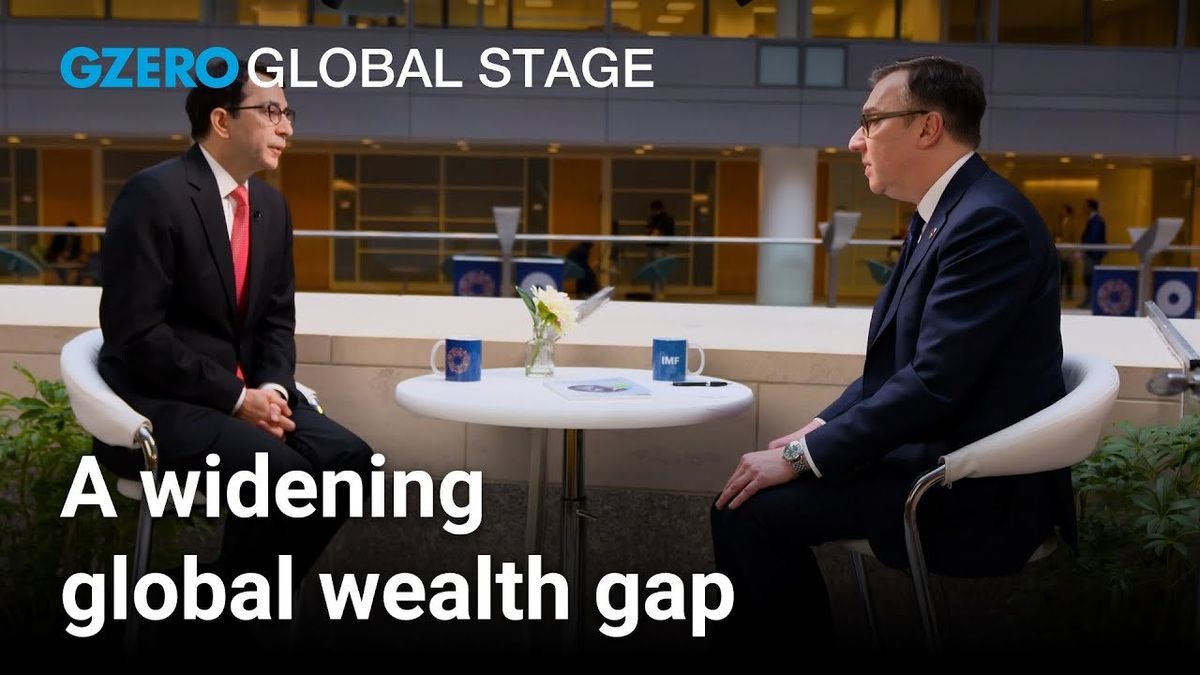It’s a staggering statistic and a marked setback from the years before the COVID-19 pandemic—the world’s poorest countries are falling further behind, and the wealth gap between the least and most developed nations is growing. One in three of these countries is poorer today than in 2019.
Ayhan Kose, World Bank Group’s Deputy Chief Economist, said that the combined shocks of multiple crises, including the pandemic, wars in Ukraine and the Middle East, food insecurity, and inflation, have taken a massive toll on the 75 least developed economies.
Kose spoke to GZERO’s Tony Maciulis as the annual Spring Meetings of the World Bank and the International Monetary Fund were underway this week in Washington, DC.
“When the food price goes up, the price of oil goes up. That has significant implications for these economies,” he told GZERO. “Where we are now, when you look at 2020-24, they registered the weakest growth rate on average since the 1990s.”
In many ways, the global economic outlook presented this week tells a tale of two post-pandemic realities. Kose explained that the most developed nations, particularly the US, showed greater resilience than expected early in 2023, and the threat of recession has been kept at bay. However, the negative impacts on poor countries, many of which are in Sub-Saharan Africa, cannot be ignored and could lead to greater geopolitical risk and humanitarian emergencies.
This week, World Bank leaders are calling for a renewed commitment to the International Development Association (IDA), which provides zero-interest loans and grants to nations most in need. Kose said the risk associated with crippling sovereign debt has caused some private sector funding to dry up and that politics and protectionism are impacting how wealthier nations approach funding.
But he also pointed to enormous opportunity in nations that are IDA-funded, including a younger population that could serve as a future global workforce and rich natural resources.
With proper investment and funding, he explained, other developing countries have been lifted to find sustained growth.
“At the end of the day history is full of examples. China, India, Indonesia, Chile, (South) Korea. They all used to be IDA borrowers. They were poorer countries. They became much richer.”
For more of our 2024 IMF/World Bank Spring Meetings coverage, visit Glogal Stage.
- What We're Watching: Nigerians vote, Biden's World Bank pick ›
- What We’re Watching: Terror in Kyiv, World Bank/IMF meetings ›
- Podcast: Fix the global debt crisis before it's too late, warns World Bank's David Malpass ›
- Debt limits of rich countries hurt poor countries' growth, says World Bank's Malpass ›
- World Bank's David Malpass on global debt & economic inequality ›
- How to tackle global challenges: The IMF & World Bank blueprint - GZERO Media ›

















